Call him 007-A. When Daniel Craig's life and limbs can't be risked in a potentially dangerous scene, Bobby Holland Hanton dons the tux and takes the leap.
Hanton, 28, has only been a stuntman since 2008, when he debuted on the previous Bond film Quantum of Solace. Since then, he has appeared in 18 films, including the latest Bond installment, Skyfall. You'd be forgiven for not recognizing him, but don't underestimate him. The former gymnast, trick-diver, and semi-pro soccer player brings unparalleled athleticism and discipline to his craft, allowing him to learn new skills and transform his body on demand.
Hanton spoke to Bodybuilding.com from the set of Thor 2 about the training the stunt trade demands, and how he developed the ingenuity to think up new Guinness World Records on a whim.
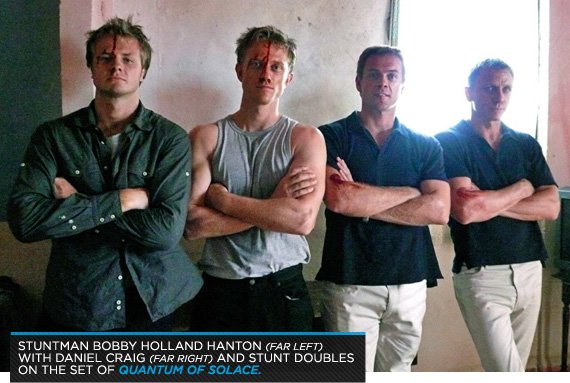
Bobby: Well, I've been a gymnast since I was a young kid, so the performance side has always been in me. Then, from the age of 19 up until I was around 23, I was doing live stunt shows and acrobatic shows, and commercials and TV, which involved free running, parkour, etc. I had enjoyed it, so I thought: What is the next level? What could I achieve if I put my mind to it and try to make the most of the skill set I've developed over many years?
I'd got a taste of film with the commercials. So I decided at about 21 that I wanted to start training for the professional stunt registry in the U.K. We have a directory that coordinators and producers and directors can go through and pick from when they need a match for an actor. I had friends who had also been in the game, so I kind of had an idea how it worked. I figured I was still at an age where I was young enough to get a lot of experience, and it was crucial for me to put those wheels in motion.
It was difficult, because basically you have to fund it yourself, and you have to find the time yourself to get all of the qualifications, which are very difficult. So I worked in live shows, and on my days off I would go and train and inject all of my money into that.
That's a great way to put it. I think the best way to describe what we have done is a physical degree. There is a criterion over here that you have to have six skills, which you can choose from maybe 12 or 13 different things. I chose the six that I thought I could get done the quickest, and the most cost-efficient.
Gymnastics was my background, so I didn't have to put any training into that. I just went down to the gym, filmed it, and took the test and passed. The same goes with trampolining. As for 10-meter high-diving, well, I worked at Lego Land in Windsor in a high-diving show. I worked in a sport park in a high-diving show. And I did some 21-meter cliff-diving in Mallorca. Plus, the somersaults and spatial awareness from gymnastics and trampolining really help with high diving. So I was halfway there.
Then I had to choose something else that wasn't my forte. Kickboxing and martial arts was another skill that you could choose. You had to get to a brown belt level to pass to be qualified, so I chose kickboxing. I had a friend of mine that who was a European kickboxing champion come train with me, one-on-one, in my hometown of Portsmouth for a couple of years.
Then I really hit a bit of luck. I had a call from a stunt coordinator who was also the gymnastics coach who took me for my trampolining test. He said look there was this audition coming up for a Bond stunt double for Quantum of Solace, and they needed someone around six foot with a skill set of acrobatic or spatial awareness for the art gallery scene. If you remember that, we were on ropes in the art gallery fighting with the character Mitchell [Glenn Foster].
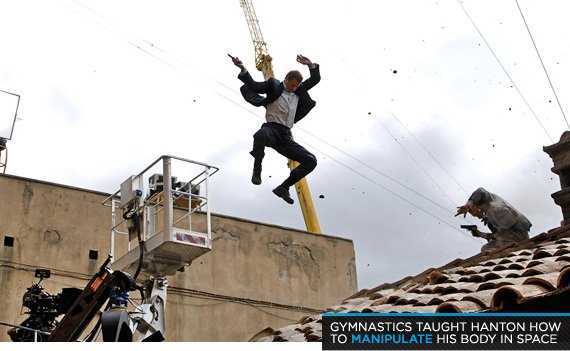
That was a skill that not many people on the qualified English stunt register had. I did. So I went to the audition only having four of my skills at the time. After five really hard, vigorous auditions with the fight team and the stunt coordinator, and some assault courses and lots of rope work, I got the job. It was a dream come true. So my training had to be put on hold while I did Quantum of Solace. I can't tell you what a priceless experience that was.
The biggest job you can do with the biggest and best stunt team you can work with. That was obviously an insight to how the game works, and all it did at the end of that movie was motivate me to go on to get the rest of my skills, which were swimming and scuba diving. I have to say, swimming was one of the hardest things I have ever done. I jumped in the pool a few times when I was a kid but it is something I have never really focused on or spent a lot of time on.
At the time it was basically similar to the Special Forces swimming test. It was a lot of lengths and then going underwater and holding your breath. But after I had just swam however many lengths and was totally out of breath, it was difficult to try to hold breath I didn't have. So I took six months out of work and pretty much trained solidly, twice per day every day, because I knew it was going to be very, very difficult. I had friends who had done it and said, "You have to take this one seriously."
Yeah, a lot of people think you get your skills and you are a qualified stuntman. That's not the way it works at all. Once you have those skills, it kind of just says, "OK you've shown you have dedication and a skill set in certain areas. Now come and learn to be a stuntman on set."
I was so fortunate to work even before I had gone through all the training. For example, I'd learned about car knock-downs, fire-burns, and getting hit by a horse and stuff like that—flying through the air, smacking into walls, fight scenes with actors. Onset experience is just priceless. Every day I learn something new.
I would be lying if I said it didn't. I can't speak for everyone, but I'm going to be honest and say there are a lot of stunts we do that do scare me. But then that scared part gets overridden with adrenaline and I say, "Let's do this. I know I can do this." I stay 100 percent positive that I can achieve it, even though I'm slightly concerned, or my stomach is turned.
Once it is safe and done, it is such a wonderful feeling to know that something people think is not possible can be done. Don't get me wrong, we get knocks and bruises, and it doesn't always go as planned, but that is part of what we signed up for. The buzz side of it, and the adrenaline side of it, totally overrides the worry of getting injured.
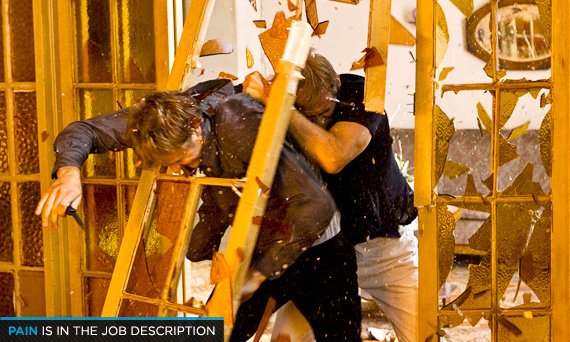
I think the main thing for me is that a stuntman really has to work with what he's got and make the best of the situation.
For example if you've got an Olympic athlete—let's say a high jumper—he's got whatever he's wearing, maybe a lycra outfit with spikes, that he'll wear throughout the year and get comfortable with. When he's ready to train, he trains. Back when I was a gymnast, I used to wear a leotard, shorts and hand guards if I was on an apparatus, and I could practice with that for as long as I wanted to feel comfortable and always be in my zone.
With stunt work, we rehearse in our normal track suit bottoms, some trainers, and a T-shirt. But what people don't realize is that then we go onto a set and get into a costume that may be really difficult to wear, and really heavy, because it has to match what the actor is wearing. They don't make it stunt-friendly, because it just doesn't work like that. They help you as much as they can, of course, but you have to work around what you have been given.
Then, when you're on set, you have to go when they tell you to. You have explosions going off, so you've got to focus on that, you've got stuff flying through the air, dust flying through the air. There are so many different elements that make our jobs more difficult and more dangerous, and that is where the rehearsal time becomes so critical. That's what we do to eliminate as much danger as possible, but it still requires making make the best of the situation, thinking on your feet, and then really giving it 100 percent of your focus.
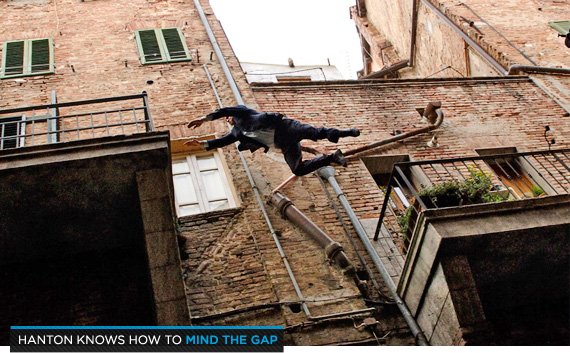
When you do this for a living there is a major danger factor, and we try to eliminate as much as possible with rehearsals and the like. But I really believe the only known cure for fear is fate. If it is going to happen, it is going to happen, as much as you put that safety element into it.
So I get a buzz from heights. I get a buzz from the danger. I get a buzz from people thinking, "Wow that looks really dangerous! I wouldn't want to be in that position," and I put my hand up and go, "I'll do it!" That's the source of my buzz.
And really, making movies is history. Once that is on film and on camera, it is forever. I can look back at that when I am much older and have become a father or a grandfather, and I can say, "I remember that." It's a really nice feeling to know that once you have done that, it's on film forever.
Exactly. It was really nice for me to get the call to do the second one in a row after doing Quantum of Solace. That was my first movie, and I was doubling for Daniel Craig, which is obviously one of the biggest jobs you can ever do as a stunt performer.
This time, the timing didn't work out as well, as I was actually working on The Dark Knight Rises in L.A. and New York. Once I had finished with Batman I did the last month on Snow White and the Huntsman, and then I went out to Turkey for two-and-a-half months on Skyfall to do some driving stuff.
But I really feel it has got a different vibe this time around [than Quantum of Solace]. I think it is gritty, and I think Sam Mendes is a fantastic director, so I think it is going to be one of the best.
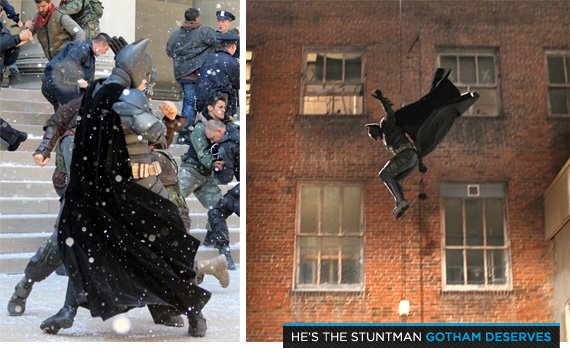
Yeah, I've used a lot of trial and error and try to figure out things in that respect. As a gymnast, with training so much and competing I could eat what I wanted and it didn't make a difference. As I'm starting to get a bit older, my metabolism is not quite as fast, although I'm still training a massive amount. But I don't get as much time to train as I was when I was competing for Great Britain gymnastics.
So staying in shape, or matching the actor you are doubling, is right up there with the rest of the difficult things that we do. When I'm putting on size to match an actor, it is tricky to maintain that for a period of six months on a movie or even longer. I've had to transform my body into different sizes that are not natural for me, so I've tried a lot diet and training programs to find what works best for me.
I think I'm in the best shape I've ever been in right now, but it's also the most demanding. I am back training twice per day, and I'm on a strict diet that was given to me by a nutritionist.
Well, at the beginning I thought that to stay lean, I needed to not eat any carbs. Now I know that is just complete rubbish—carbs are very important. To actually burn the fat, stay lean, and keep the size, you need carbs.
Now I've got more information, and a little help. When I first got the diet program, I was like "What the hell? Surely this can't be what I eat to maintain what I want," but I have found that it is. At the moment I have a protein breakfast within a half-hour of waking up—it is very important—and then I eat regular amounts every two hours. I don't ever fill myself up, but regular amounts of starchy vegetables, and then I'll have good portions of protein and good carbs like brown rice and sweet potato. Also, I didn't realize it before, but good fats like avocado and olive oils, and cottage cheese, and natural nuts and stuff like that have made me a lot leaner, while I've kept my size on.
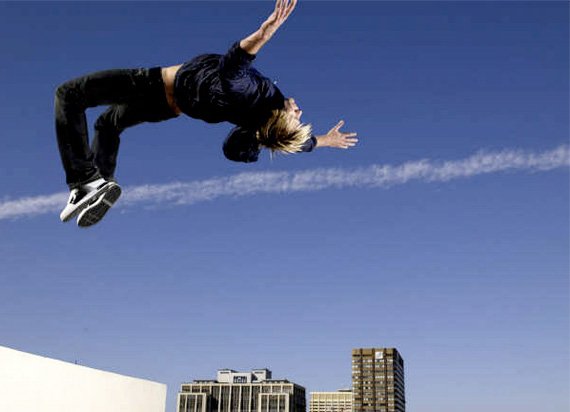
Yeah, that is my cheat day. When I spoke to this nutritionist, he said it is very good for you to have one cheat day each week because it spikes your system—it shocks it, if you like. It's like "Whoa, what is this overload?" and it makes your metabolism speed up.
My cheat day is a Sunday, and I can't tell you how much that is now my favorite day of the week. I can't wait for a Sunday when I can relax, let my body recoup, and I can eat whatever I want. The first six weeks weren't quite as nice as that. To get where I needed to get, the cheat side of it was basically that instead of having sweet potato, I could have boiled or roast potato, or I could get away with having a bit of whole milk bread.
I found that very difficult, because it then released endorphins and stuff. I didn't realize before how much sugar was in carbs, and how much was in bread and stuff. So when I took that away, I would wake up in the middle of the night craving chocolate and sweet things, which wasn't good. So I had to modify it a bit. So what you are seeing on Twitter, I was at least six weeks in. I have a two-hour window where I eat whatever I want as much as I want.
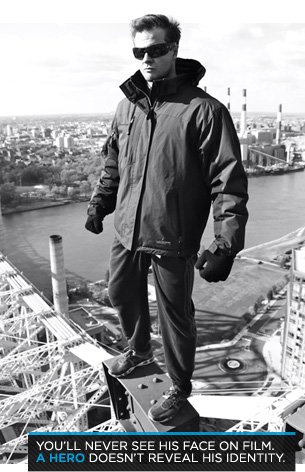
I find the easiest for me is sticking to a set routine. When I am working on something this demanding, if that goes off a little bit, I find it is quite hard to get back into it. So I am quite regimented.
I have a set thing from literally when I wake up in the morning. I get up and go shower first thing. I have just started using the Dove Men's Plus Care products at the moment, and so I go have a shower using their Fresh Awake face and body wash, which kickstarts my day. They also have a deodorant that I am using, the Aqua Impact antiperspirant. The last thing I want to do is go to work and be standing with an actor, and they are like, "Oh God, I don't want this guy. He smells."
Then, I make sure I eat, and I go to work and train and train the actors and stuff like that. Sunday is my complete rest day. I won't go to the gym, I'll see some friends and family, and I will get a lot of sleep. When I am training so much, I need at least eight hours to get the full benefits of everything.
For me, my best results are basically from muscle memory going back to my gymnastics days, which was all my own bodyweight. I also train with the actors in the gym, of course, if that is what they require.
On the martial arts side, I do a lot of kickboxing, hitting the bag, and sparring with the guys at work. That would be our cardio, and then a lot of chins, dips, press-ups, squats. If I have to focus on one body part that needs to be bigger or is exposed—for example if sleeves are out— then I will isolate that muscle group with weights to accentuate that part of the body.
There are always things that pop into my head. I daydream about stuff like that. For example, I'm a Guinness World Record holder for a world record that I made up, which is the most back somersaults with a ball, flipping the ball into a basketball net.
Next year at some point, there is another world record that I want to attempt. I've been in contact with Guinness and we've got some good ideas. It's already a world record, but it is basically a flip, throwing forwards with a football, and you throw it as far as you can.

It's just the creative side of me coming out. I did that as a kid in the gym with a bit of foam in between my feet. Then a few months later, I was in the basketball hall at school, and I had the idea, "I will try this with a ball now. There is no reason why that shouldn't happen."
Of course the first time it didn't go right, but I released it and practiced, and finally released it at the right time. Once I got that down, I thought, "Let me try it up against the basketball net and try and get it in the net—or on the backboard, off the wall, and then once I land the ball will bounce off the wall and I'll carry on doing tricks." No one had ever done it, so I approached Guinness and they loved the idea. I know it's still early, but I think that will be a standing record for a time to come.
I'm very lucky to be able to even attempt things that people can only dream about, so I want to showcase that training and hard work. What is the point in working so hard if you are not going to show anyone or get any results from it?
